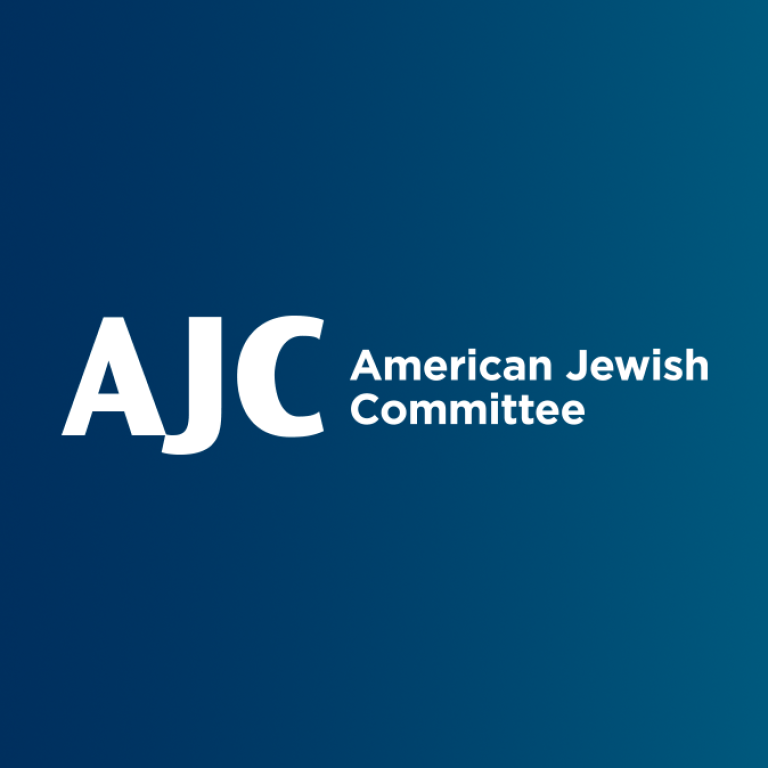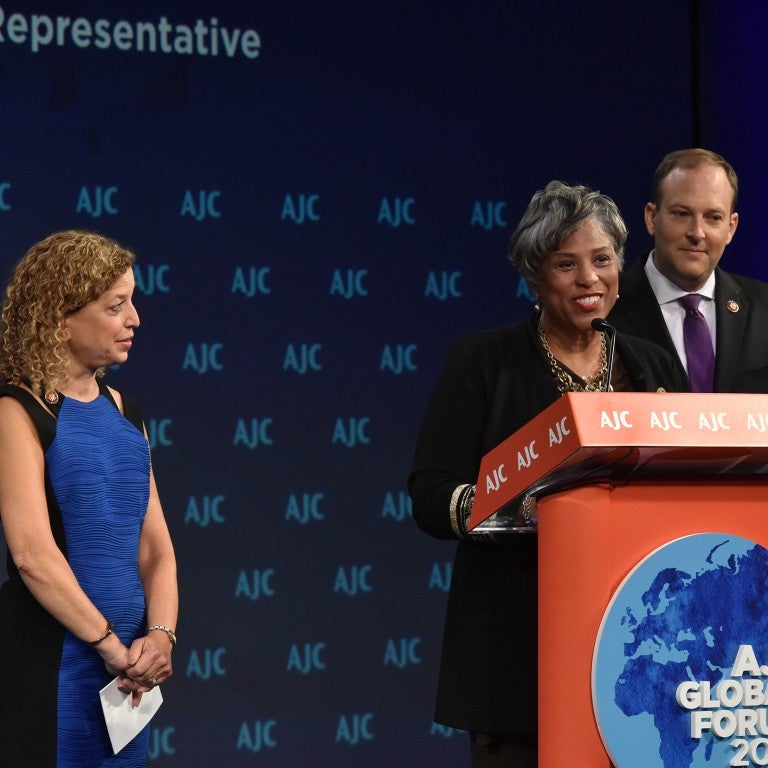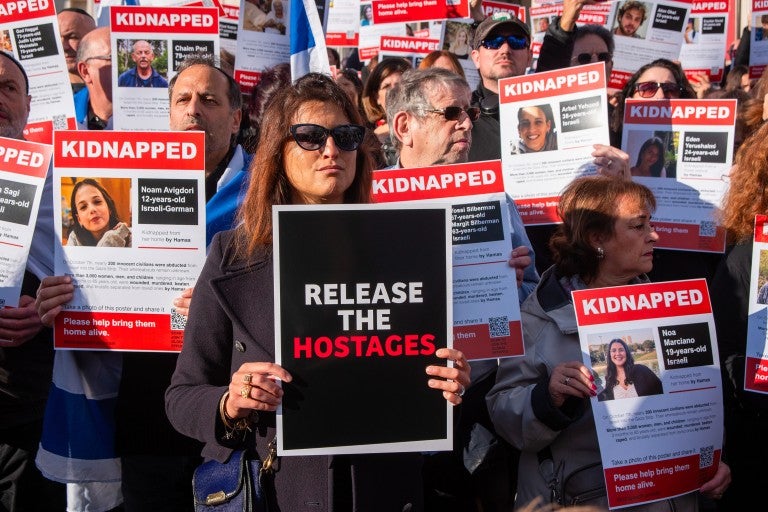September 10, 2020
American Jewish Committee (AJC) and the National Urban League in 2020 compiled a list of ten great moments that highlight the strong ties between America’s Black and Jewish communities.
-
AJC lay leader Julius Rosenwald and the Pursuit of Black Education in the South (1911-1932)
Born in 1862 in Springfield, Illinois, Julius Rosenwald, founder and president of Sears Roebuck and the son of German Jewish immigrants, contributed more generously to the welfare of Southern Black people than did any philanthropist in American history up until that time. He provided over $70 million to build and repair Black schools in African American neighborhoods in the South.
As a Jewish American, he felt a deep personal commitment to humanitarian issues and funded special projects, especially YMCAs for Black Americans. He recognized the particularly difficult circumstances that African Americans were experiencing and wrote in 1911: “The horrors that are due to race prejudice come home to the Jew more forcefully than to others of the white race, on account of the centuries of persecution which they have suffered and still suffer.”
Rosenwald’s efforts led to the construction of over 5,300 schools for African Americans in 14 southern states.
-
The “Double V Campaign” for Racial Equality at Home and Victory Against the Nazis Abroad (1942)
The “Double V Campaign,” as it was called, sought two victories for Black Americans: victory at home and victory abroad. In a February 14, 1942 article, the Pittsburgh Courier declared, “We, as colored Americans are determined to protect our country, our form of government and the freedoms which we cherish for ourselves and the rest of the world, therefore we have adopted the Double ‘V’ war cry—victory over our enemies at home and victory over our enemies on the battlefields abroad. Thus, in our fight for freedom we wage a two-pronged attack against our enslavers at home and those abroad who will enslave us. WE HAVE A STAKE IN THIS FIGHT...WE ARE AMERICANS, TOO!”
The 761st Tank Battalion and 183d Combat Engineers, both all-Black units, helped liberate the Buchenwald and Dachau Nazi concentration camps. In six months, the 761st Tank Battalion, which was part of Gen. George Patton's Third Army, captured 30 major towns in Europe and received 300 Purple Hearts.
-
The Civil Rights Movement
- Brown v. Board of Education – 1954
In 1950, AJC hired psychologist Dr. Kenneth Clark to study the impact of school segregation on Black children. He found that segregated education had a large negative impact on Black children’s self-esteem. Dr. Clark’s research and findings became a major part of the brief prepared by the National Association for the Advancement of Colored People (NAACP) in the landmark Brown v. Board of Education case.
“For us at AJC, Brown v Board of Education is more than a landmark case, one in which AJC filed a friend-of-the-court brief. Much of the psychological research on the harmful impact of school segregation on minority children conducted by Professor Kenneth Clark was sponsored by AJC, and Chief Justice Warren cited that study in the decision. We look at that contribution to American society with great pride, indeed, as one of the most important things AJC has ever done,” declared David Harris, AJC Chief Executive Officer (1990-2022), during the 60th anniversary of the landmark United States Supreme Court decision, in 2014.
- The March on Washington – 1963
On August 28, 1963, more than 250,000 people from across the nation came together in Washington, D.C. to peacefully demonstrate their support for the passage of a meaningful civil rights bill, an end to racial segregation in schools, and the creation of jobs for the unemployed. It was the largest demonstration ever held in the nation’s capital, and one of the first to have extensive television coverage. It was at this event that Rev. Dr. Martin Luther King gave his iconic“I Have A Dream” speech.
AJC was part of the sponsoring committee of the march and AJC’s Vice President at the time, Joseph Ross, released a powerful statement prior to it, emphasizing that Black people would “win [this] revolution because [they are] citizen[s] of this country as much as we are; because it is the soul of America which is at stake.”
- Mississippi Burning – 1964
During the 1964 “Freedom Summer,” a massive three-month initiative to register Southern Black people to vote and a direct response to the KKK’s campaign of fear and intimidation, more than half of the hundreds of lawyers assisting civil rights workers in southern courts were Jewish. A painful but powerful symbol of this cooperation was the murder in Mississippi of three civil rights workers, who were all lobbying behind the scenes to help pass the Civil Rights Act of 1964: Andrew Goodman and Michael Schwerner, who were Jewish, and James Chaney, who was Black. Rev. Martin Luther King, Jr. acknowledged the work of Jews on civil rights saying it would be impossible to record the contribution Jewish people have made in advancing the African American community’s quest for freedom because the impact was so large.
- Rabbi Abraham Joshua Heschel marched with Rev. Martin Luther King, Jr. in Selma – 1965
On Sunday, March 21, 1965, Rabbi Abraham Joshua Heschel marched with Rev. Martin Luther King, Jr. from Selma to Montgomery, Alabama, in one of the pivotal moments in the Civil Rights Movement.
In 1968, Dr. King was assassinated and Rabbi Heschel was asked to speak at his funeral. “Martin Luther King is a voice, a vision and a way. I call upon every Jew to harken to his voice, to share his vision, to follow in his way. The whole future of America will depend upon the impact and influence of Dr. King,” he said.
-
Black support for Israel
Black Americans endorsed and fought for the UN resolution calling for the establishment of a Jewish state – the State of Israel. Walter White, Executive Secretary of the NAACP, lobbied for the resolution with the delegates from Ethiopia, Haiti, and Liberia, helping bring about two affirmative votes and one abstention.
In 1950, the Norwegian Nobel Committee awarded the Nobel Peace Prize to its first person of color, the African-American and United Nations official Ralph Bunche. He received the Peace Prize for his mediation efforts following Israel’s War of Independence in 1948-1949. Bunche helped secure armistice agreements between the new State of Israel and four of its Arab neighbors: Egypt, Jordan, Lebanon, and Syria.
During the 1970s, an organization known as Black Americans in Support of Israel (BASIC) was formed by A. Philip Randolph and Bayard Rustin, civil rights leaders who were the originators of the 1963 March on Washington. Among its 250 members were mayors Tom Bradley of Los Angeles and Maynard Jackson of Atlanta; several members of Congress; sports and entertainment figures like Hank Aaron, Arthur Ashe, and Count Basie; and clergymen and civil rights leaders like Coretta Scott King and Rev. Ralph Abernathy. The group’s purpose was to organize trips to Israel and provide educational information to the Black community regarding Israel and Zionism. BASIC condemned Ugandan president Idi Amin’s anti-Israel statements and supported efforts against the Arab League’s boycott of Israel.
In 1991, AJC placed an ad in The New York Times about Operation Solomon, the daring rescue mission that airlifted 14,000 Ethiopian Jews to Israel in less than 48 hours. 36 Black mayors from across the U.S., including the leaders of New York, Los Angeles, Atlanta, and Philadelphia, joined the effort. The ad read, in part: “We have a stake in Israel.—America’s Black Mayors”
-
Black support for Soviet Jewry Movement – 1971
In 1971, at the Freedom Lights for Soviet Jewry rally at Madison Square Garden, American Jews were joined by Black activists and organizations to express solidarity with Soviet Jewry and fight for the freedom of three million Jews in the Soviet Union. Vernon E. Jordan Jr., President of the National Urban League, stated that, “We are all diminished when Jews in Russia are denied their basic freedoms, just as all humanity is diminished when black Americans are denied the equality that is rightfully ours.”
In 1987, at Freedom Sunday, an estimated quarter of a million Americans flooded the National Mall in Washington, D.C., to demand freedom for the refuseniks—Jews living inside the Soviet Union who were denied permission to leave the country. The December 6 rally—which was attended primarily by Jews but which was joined by many others, including prominent Black leaders—was planned for the day before the historic summit at the White House between President Ronald Reagan and Mikhail Gorbachev, leader of the Soviet Union. Former AJC CEO, David Harris, served as the national coordinator for Freedom Sunday.
To learn more about the Soviet Jewry Movement, listen to former AJC CEO David Harris in their AJC Advocacy Anywhere programs: Part One and Part Two.
-
Black Leaders and the National Urban League’s Support for Repeal of “Zionism is Racism” Resolution – 1975
Bayard Rustin, a civil rights organizer and activist best known for his work as adviser to Rev. Martin Luther King Jr. in the 1950s and 1960s and for helping to organize the 1963 March on Washington, championed Israel as a democratic sentry surrounded by Middle East dictatorships. He considered the 1975 UN resolution equating Zionism and racism “an insult to the generations of Blacks who have struggled against real racism.” Before the vote on Resolution 3379, in 1975, 28 African American intellectuals appealed to the General Assembly to bury this “extraneous issue.” Hundreds of Black American leaders supported the effort, including Rosa Parks, Coretta Scott King, Rev. Martin Luther King Sr., Hank Aaron, Harry Belafonte, Lionel Hampton, and Dorothy Maynor. Rustin wrote to Black African ambassadors and mobilized 135 national civil rights organizations and, together, they issued a statement calling the resolution an “appalling” effort that “threatens to make mockery of a noble idea.” Zionism itself, the civil rights leaders argued, “was part of the long fight against racism.” Rustin commented on the resolution in a newspaper column, writing: “Zionism is not racism, but the legitimate expression of the Jewish people’s self-determination […] From our 400-year experience with slavery, segregation, and discrimination we know that Zionism is not racism.”
Vernon E. Jordan Jr., President of the National Urban League at the time, said: “Smearing the ‘racist’ label on Zionism is an insult to intelligence. Black people, who recognize code words since we’ve been victimized by code words like ‘forced busing,’ ‘law and order,’ and others, can easily smell out the fact that ‘Zionism’ in this context is a code word for antisemitism.”
The resolution was revoked in 1991.
-
Representative John Lewis, the Atlanta Black Jewish Coalition, and Voting Rights – 1982-2020
Representative John Lewis was not only a pioneer when it came to breaking down racial barriers – he stood up against injustice targeting all communities, most notably including the Jewish community.
In 1982, a group of concerned citizens from Atlanta’s Black and Jewish communities came together to campaign for the renewal of the Voting Rights Act. The drive to renew one of the most important pieces of civil rights legislation in U.S. history reinvigorated the bond between the two communities. Lewis marched with members of the Jewish community and helped establish the Atlanta Black-Jewish Coalition to ensure that open dialogue and partnership between the Black and Jewish communities would continue in Atlanta. Lewis often spoke about how Rosa Parks and Rev. Martin Luther King, Jr. inspired him “to find a way to get in the way” and acknowledged the “members of the Jewish community for getting in trouble” with him.
"We are immensely grateful for his dedication to, and connection with, the Jewish community," said former AJC CEO David Harris upon learning of Lewis’s death in 2020. "He was instrumental in encouraging Black-Jewish dialogue, consistently outspoken against antisemitism, one of Israel's strongest advocates in Congress, and an active supporter of the Soviet Jewry movement in the 1970s and 1980s."
Lewis’s relationship with AJC spanned decades, from his creation of the Atlanta Black-Jewish Coalition to, most recently, serving as a founding Co-Chair for the Congressional Caucus on Black-Jewish Relations, launched at the AJC Global Forum in June 2019. He was honored with AJC Atlanta's Selig Distinguished Service Award (1994), Congressional Leadership Award (2005), and American Liberties Medallion (2018).
In 2019, Rep. John Lewis voiced his opposition to the anti-Israel Boycott, Divestment, and Sanctions (BDS) movement stating that “economic, educational, and cultural interaction with Israel, America’s democratic ally, is not only in the best interest of Israelis and Americans, but it improves the climate for peace with Palestinians, which is in everyone’s interest to encourage.”
Read the Atlanta Black-Jewish Coalition’s statement on the passing of John Lewis.
-
Jewish Efforts in Rebuilding Black Churches –1996
A wave of church burnings, largely targeting Black churches, swept the nation in 1996. Jewish groups, including AJC, mobilized and established funds to help rebuild the churches.
A group of Black and Jewish teens helped rebuild an Alabama church over the Fourth of July holiday and in August 1996, President Clinton, Vice President Gore, and their families joined Rabbi James Rudin of AJC and the Reverend Joan Brown Campbell of the National Council of Churches to help rebuild a church in Tennessee.
In December 1996, former AJC CEO David Harris presented a sizeable donation and participated in the ceremonial groundbreaking of the new building for the Gay’s Hill Baptist Church in rural Georgia. AJC Atlanta sent volunteers to help in the construction of the new building and was present for its dedication in July 1997. AJC Chicago coordinated fundraising in the religious community, leading the Catholic archdiocese, the Lutheran Church, and other Christian bodies to instruct their members to send their donations for the churches to AJC.
AJC, in partnership with the National Council of Churches and the National Conference of Catholic Bishops, raised more than $200,000 for the rebuilding effort.
-
13 Jewish groups, including AJC, call for a Shabbat of Solidarity with the African-American community – 2015
On June 17, 2015, nine Black worshippers were killed during Bible study at Charleston’s Emanuel African Methodist Episcopal Church, also called Mother Emanuel, by a white supremacist who targeted the church for its history and stature in the Black community and the fight for civil rights.
In an extraordinary display of unity, a broad cross-section of American Jewish organizations joined together to declare the Shabbat beginning the evening of Friday, June 26 be a “Shabbat of solidarity with the African-American community.” Leaders across the American Jewish community asked their members to participate in this expression of unity with Black Americans.
“The Jewish community has long-standing historic ties with the African American community going back to the Civil Rights era,” explained Rabbi Stuart Weinblatt, Rabbi of Congregation B’nai Tzedek in Potomac, Maryland, convener of the coalition and President of the Rabbinic Cabinet of the Jewish Federations of North America. “This Shabbat of solidarity is just the latest example of us standing together in the face of bigotry and hatred.”
-
Launch of the Bipartisan Congressional Caucus on Black-Jewish-Relations at AJC Global Forum – 2019
On June 3, 2019, at AJC Global Forum in Washington, D.C., Reps. Brenda Lawrence (D-MI), Debbie Wasserman-Schultz (D-FL), Lee Zeldin (R-NY) announced the launch of the bipartisan Congressional Caucus on Black-Jewish Relations. The other co-founders included Rep. Will Hurd (R-TX) and the late Rep. John Lewis (D-GA).
“The African-American and Jewish communities have a history of standing together for the promotion of social justice and civil rights. There are very few segments of America that have invested themselves in these struggles as much as these communities,” said Lawrence. “To encourage and nurture this unique partnership, I have formed the Congressional Caucus on Black-Jewish Relations with the hopes of strengthening the trust and advancing our issues in a collective manner.”
Please click on this link to watch this historic moment.





